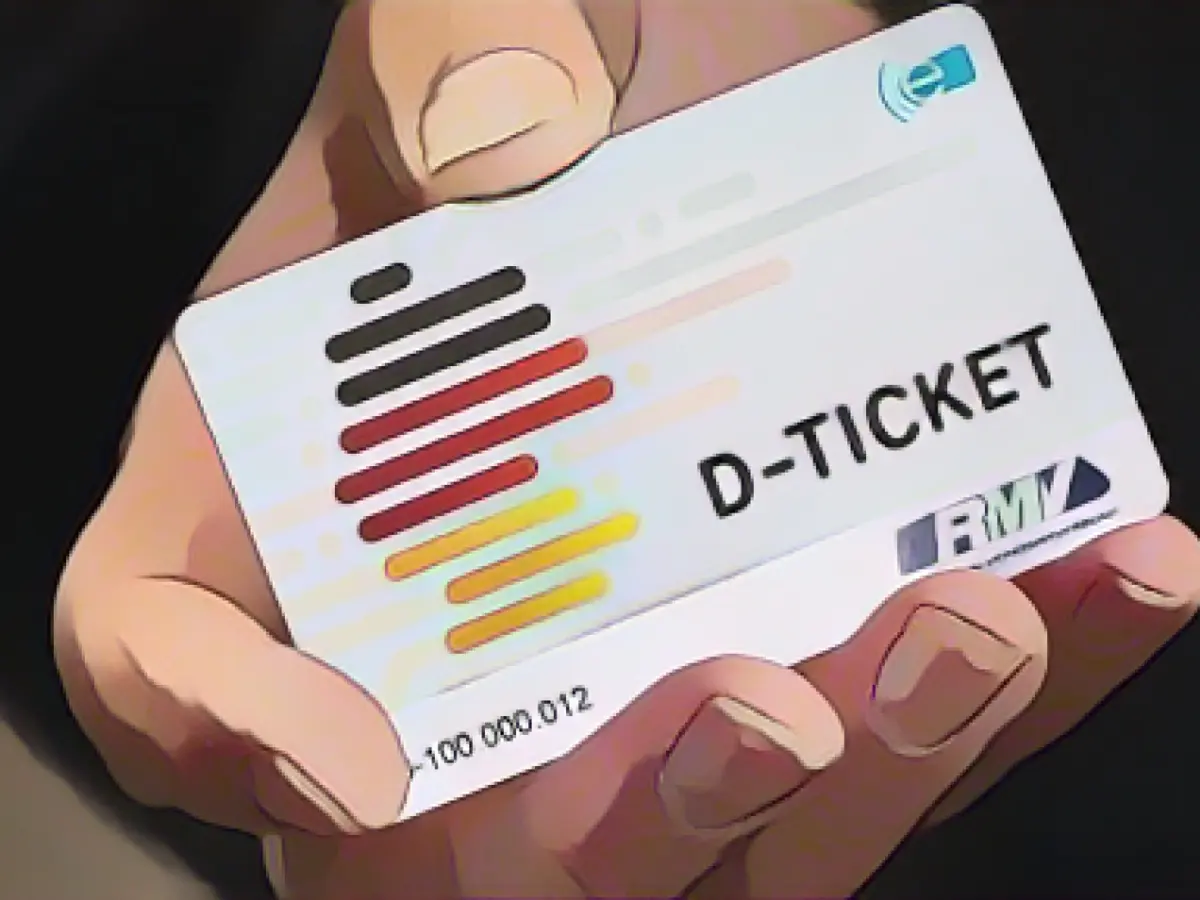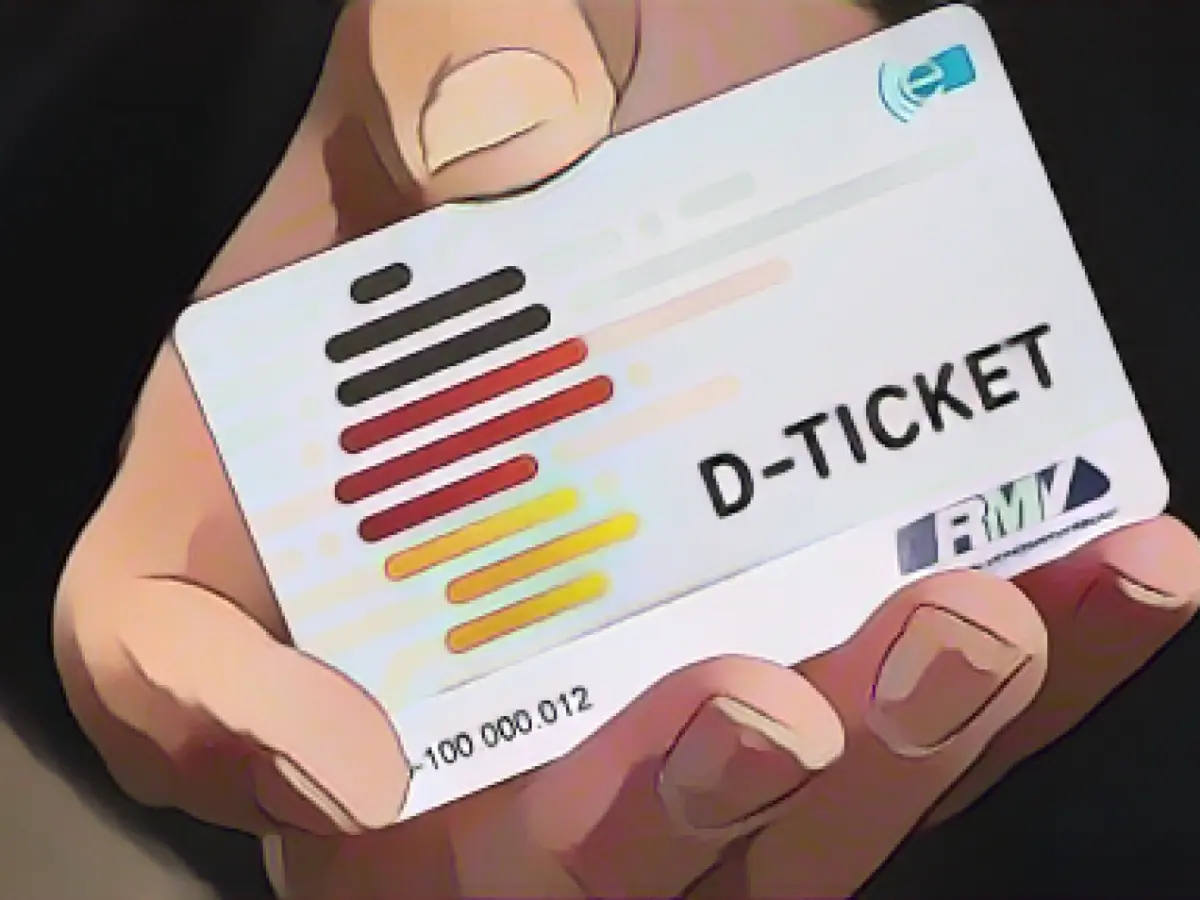The Future of Germany's 49-Euro Ticket for Local and Regional Transport: Uncertainty and Controversy
Just a couple of short months following its grand introduction, the Deutschlandticket, a local and regional transportation pass priced at an enticing 49 euros, is facing numerous stress tests. Unresolved long-term financing issues, looming price hikes, and doubts about its nationwide validity have cast a cloud over its future.
The financial uncertainties surrounding the Deutschlandticket have prompted Detlef Neuß, Federal Chairman of Pro Bahn, to issue a warning: "If several local authorities follow the lead of Stendal, the Deutschlandticket's demise would be imminent," he stated on MDR television.
Last week, the Stendal district council declined to endorse the recognition of the Deutschlandticket within the district, making it invalid for buses from January 1st. The council proposed that the ticket would incur additional costs of 40,000 euros for the first four months of the year, leading to its revocation. Despite the impact on buses, trains will remain unaffected, with the Ministry of Infrastructure in Magdeburg classifying the decision as an isolated case.
The financial burden of the Deutschlandticket has prompted concerns among politicians and industry leaders, who are anxious to prevent further instances of municipalities withdrawing from the ticket. "We must stop a domino effect from occurring," emphasized Dirk Flege, Managing Director of the Pro-Rail Alliance. If other counties were to engage in similar discussions and ultimately withdraw support for the Deutschlandticket, the worst-case scenario could materialize.
The federal and state governments have agreed on the importance of the Deutschlandticket's availability in 2024, but they remain divided on how additional costs will be allocated. The Association of German Transport Companies (VDV) forecasts that the losses incurred by the industry due to the introduction of the Deutschlandticket could reach 2.3 billion euros in 2023, rising to 4.1 billion euros in the full year 2024.
Current projections suggest that a funding gap of 400 million euros may exist between the pledged six billion euros for the years 2023 and 2024 and the actual costs associated with the Deutschlandticket. In early November, transportation ministers from the German states were tasked with presenting a solution for the ticket's further financing before May 1st, 2024. This mandate included the creation of a mechanism for updating the ticket's price, which may involve an increase.
While the potential for price increases beyond 49 euros has always been anticipated, many experts believe that any such adjustment would be met with strong consumer resistance, potentially resulting in a significant number of subscription cancellations. Many consumers view the current price as already excessive.
The Federation of German Consumer Organizations (vzbv) shares this concern, as a more costly Deutschlandticket could jeopardize consumer acceptance and further weaken local transportation as a whole. Marion Jungbluth, a mobility expert at vzbv, advises that the federal and state governments should fulfill their responsibilities and contribute more funding to the ticket to spare users from carrying an undue burden.
Local authorities and transportation companies in various regions are not all bound by the order of the respective German state or membership in a transportation association. In such cases, "the federal states must compel districts and cities to utilize the Deutschlandticket and thus assume responsibility for financing," as demanded by the German Association of Districts on November 23rd.
The Association of German Transport Companies also emphasizes the need for legal protection to ensure the ticket's lasting success. "In order for the ticket to be a lasting success, it needs to be legally secure," acknowledged Alexander Möller, Managing Director of the association. This task is a shared responsibility for the federal government, the German states, and local authorities.
While the Stendal district council's decision to invalidate the Deutschlandticket on buses is seen as an isolated incident by the Alliance pro rail and the Association of German Transport Companies, the example could inspire other local authorities to consider following suit. In light of the financial implications and potential for a ripple effect, the future of the 49-euro ticket remains uncertain and fraught with controversy.
Enrichment Data:
- The subsidies required to maintain the affordability and user-friendliness of the Deutschlandticket total approximately 3 billion euros annually, with half coming from the federal government and half from the German states.
- Although the German conservative parties, CDU, and CSU, have questioned the cost-effectiveness of the Deutschlandticket, the Green Party, and the Social Democrats, support its continuous availability and affordability.
- While the overall acceptance and usage of the Deutschlandticket have been high, certain user groups have expressed dissatisfaction with the limitations of the ticket, including passengers traveling from a city to rural areas or those only commuting by bus.
- The financial uncertainties associated with the Deutschlandticket could impact the federal government's ability to allocate resources to other critical sectors, such as healthcare and education, raising concerns about potential negative consequences across the country.





